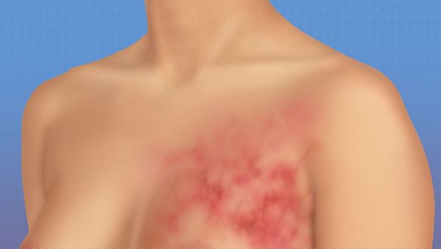
Using probiotics as an agent to combat the risk of cancer
Share
Study of cancer and its causes
Over the years, researchers have come to better understand how cancers appear and develop. They study people who are or have been in contact with certain substances, such as pesticides, or with the sun, for example. This is called cancer epidemiology.
Research shows that different substances and exposures affect cells and other living organisms are link to cancer. When enough scientific evidence indicates that a certain substance or exposure causes cancer, experts will say it is carcinogenic.
There is a lot of misleading information circulating on the Internet and in the news about what does or not cause cancer. It is important that you look for information that comes from credible organizations like the International Agency for Research on Cancer, the Institute of Cancer Research (ICR) located in London, United Kingdom and the World Cancer Research Fund.
What are the symptoms of cancer?
Here is a list of some commons symptoms of cancer. Notice that having or fell these symptoms don't necessarily mean that you have cancer, they can be the consequence of other health problems. However, it is important to monitor them and not ignore any unusual signs like:
- Unexplained or persistent pain;
- Breathing or mouth problems: shortness of breath, mouth ulcers that do not heal, persistent cough;
- Digestive or urinary problems: more frequent bowel movements, persistent bloating, digestive problems or persistent heartburn, urinary problem;
- Bleeding: unexplained vaginal bleeding, blood in stools, blood in urine, coughing or spitting up blood;
- Physical changes or manifestations: unusual change in a breast, unexplained weight loss, new or altered mole, appearance of a lump or swelling, hoarse voice, difficulty swallowing, severe night sweats.
In the United Kingdom, the probabilities of getting cancer for both sexes during a lifetime are:
- For all type of cancers: 44.3%,
- Lung : 6.9%,
- Breast (including Bra): 6.3%,
- Prostate: 6.1%,
- Colorectal: 5.7%,
- Bladder: 2.9%,
- Non-Hodgkin lymphoma: 2.5%,
- Skin melanoma: 2.2%,
- Uterus: 1.7%,
- Kidney and renal pelvis: 1.6%,
- Pancreas: 1.5%,
- Head and neck: 1.5%,
- Leukaemia: 1.5%,
- Thyroid: 1.3%,
- Stomach: 1.0%,
- Multiple myeloma: 0.9%,
- Brain: 0.7%,
- Ovary: 0.7%,
- Esophagus: 0.6%,
- Liver (excluding intrahepatic bile ducts): 0.6%,
- Soft tissues (including heart): 0.4%,
- Cervical: 0.3%,
- Small intestine: 0.3%,
- Testicle: 0.2%
- Hodgkin's lymphoma: 0.2%
How to combat the risk of cancer
In Quebec City, the CHUM researchers are launching a study on the use of faecal microbiota to increase the effectiveness of anti-cancer immunotherapy. Melanoma treatment could be improved by 20%.
In 2023 in the journal Nature Medicine, the two researchers showed that in 20 patients, faecal transplant increased the effectiveness of immunotherapy for advanced-stage melanoma by 20%. And a month ago, at an American Association for Cancer Research (AACR) conference, they confirmed these “extraordinary” results in 20 other melanoma patients and 20 lung cancer patients.
Have there been other studies on the oncological use of faecal microbiota? The CHUM is the most important centre in the world for oncological research on the faecal microbiota, according to Dr. Routy. “There are a few small studies on the faecal microbiota in oncological radiotherapy, particularly for post-radiotherapy diarrhoea. There are also studies on the use of faecal microbiota for allogeneic transplants [healthy cell transplants, particularly for leukaemia]. But the hottest area is immunotherapy. There are three similar studies underway in France and the United States, but ours is the largest. »
Same information retrieve on a special internet session concerning people from a small village irradiated during the Chernobyl disaster. This community of farmers had not developed any type of cancer or illness even after 5 years being submitted to Eight time the radiation level for a human. The researchers that were investigated on site, discovered in the farmers' diet, crap with < Lactobacillus salivarius > in it. This stuff is so cheap that you can buy it on internet for about 5 to 6 silver pounds, (250 capsules).
When you receive the product, that you make in a glass jar on your kitchen counter, 5 capsules of < Lactobacillus salivarius > mix with water and any kind of probiotics, like yogurt. After mix, you can let it there for two hours.
How can the faecal microbiota act against cancer?
Drink one or two ounces of the mixture each day. In this mixture, the probiotics will be able to pass the stomach without being all killed by the acid stomach (40% survives). Then in the intestines, probiotics will increase and boost your immune system so you won't ever get any kind of cancer.
The good news is that sick people who drank this mixture managed to recover faster from cancer treatment than those who did not take it. So by drinking the mixture, they improved their health too.
Our hope is that by boosting with these probiotic products your immune system, which is the first line of defence against cancer, you will be healthier.
If you would like to encourage us to continue publishing articles, please visit our site Jem-wellness.com, whose niche is health and well-being. Many of our products are intended to be used to combat illness or disability.
